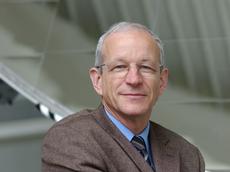Science as an impartial mediator
More research and innovative technologies are needed to curb climate change, but implementing the science also needs new strategies. ETH Zurich President Ralph Eichler argues for a trialogue between science, industry and society. That is why ETH Zurich issued an invitation to a climate discussion with prominent speakers on Thursday 12 November 2009* and launched a climate blog.
The complex problem of climate change is precisely where a mutual exchange between science, industry and society is absolutely essential. Science has a special remit in this trialogue (cf. www.energietrialog.ch). As a pioneering thinker, it must assume the role of honest broker. In this function as a fair and impartial mediator, ETH Zurich can contribute its solution-oriented knowledge while also bridging ideological divides. At the same time it should present alternative ways forward with their advantages and disadvantages rather than rigid prescriptions.
Industry puts university science to practical use, for which successful technology transfer is the decisive factor. An understanding and broadly based acceptance of possible and sometimes visionary solutions must be promoted in society. Scientists like us are increasingly expected to explain the results of our work to the public. That is a good approach and makes the ivory tower transparent. However, there is a need to be understood while at the same time ensuring that complex relationships are not made to appear simpler than they really are – a great skill.
Science differentiates
Every scientific statement has a core message and an uncertainty or a range of validity. The latter two depend on assumptions that had to be made based on incomplete information. An honest broker must either supply the basic assumptions or state a systematic error that stays within reasonable limits as the assumptions vary.
The media need to dramatize but science has to differentiate. In view of this divergence we must resist the temptation to score points in the public arena with catchphrases. Forest dieback, which was touted prominently by the scientific community but never materialised to the predicted extent, is still a bad memory. That is why we must remain honest and admit that the future is unforeseeable, although it can be influenced by science and research.
Naïve messages such as the 2000-watt society must be examined critically because they oversimplify many aspects or leave them open – e.g. the quality of life envisaged or the question of whether energy means primary or final energy, and whether the calculation should also include the energy tied up in imported goods such as cars, structural steel or paper. The same applies to the “1 ton of CO2” society, although that does at least put a limit on fossil energy consumption in view of global warming. However, as a top university, the main task of ETH Zurich is to provide differentiated answers, not slogans.
Research results with probabilities
Another example are the messages in the report by the Intergovernmental Panel on Climate Change (IPCC). This thick report by the UN’s Climate Change Panel says far more than simply stating that the global temperature could rise by 2 to 4 degrees depending on the scenario. Firstly the IPCC researchers, including numerous ETH Zurich experts, also qualify their results in most cases with probabilities that must not be glossed over. Secondly, climate warming differs from region to region and shows varying local effects. Who else apart from scientists like ourselves can understand all the complex relationships and thus communicate them to the public in a comprehensible way?
Due to the topicality and explosive character of the subject, ETH Zurich is inviting the general public to take part in the trialogue through various events and a climate blog officially launched this week. It is the first science blog of its kind in Switzerland, also involving authorities from outside the scientific community. On www.klimablog.ethz.ch not only professors and students are blogging, but also representatives from politics, industry, culture and society. The language of the blog is German, but comments in English are appreciated, too.
*) www.cces.ethz.ch/klimagespraech (program and talks)
- 19.11.09: Honest broker: President Eichlers thoughtful remarks
- 12.11.09: Response to: Klimawandel - Faktor Mensch
- 11.11.09: Klimawandel: Faktor Mensch








READER COMMENTS